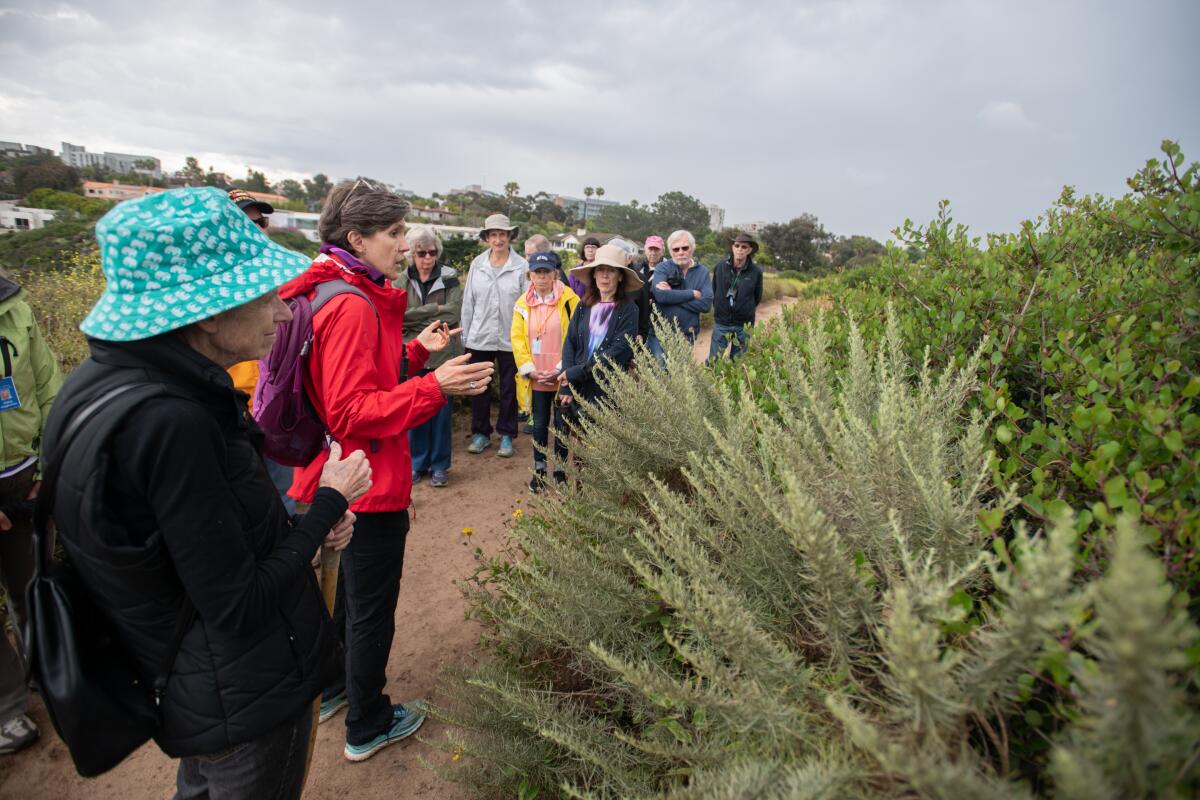Apodaca: A UC Irvine program helps older adults embrace lifelong learning

Finally, a topic in education that isn’t drenched in controversy.
The concept of lifelong learning is simple, understandable and impossible to view as anything but beneficial. Who could argue with the goal of improving the mind at any age?
It’s also an idea with so much built-in flexibility that it’s adaptable to pretty much anyone. Classroom learning not your bag? Try learning a new skill instead. Don’t care for puzzles or games? Not a problem. Just read a book.
The point is, learning is good, and learning at every age should be encouraged, whether it’s for professional or personal reasons.
I have just one minor quibble — if you could even call it that. Too often lifelong learning is presented as something old folks should do to keep their brains from withering into decrepitude. The arguments in favor sometimes trod a little too closely to a take-your-medicine approach, rather than emphasizing the enjoyable and fulfilling aspects.
Granted, there is growing evidence of the health benefits of lifelong learning. Although the research isn’t yet conclusive and more study is needed, many scientists believe that staying mentally active can help reduce the risk of age-related cognitive impairment.
The National Institute on Aging points to studies that show that engaging in “personally meaningful activities,” learning new skills, and taking part in such pastimes as music and writing might improve the health and quality of life of older people.
That’s all great. If it comes down to it, I’d much rather listen to a concerto than take a pill.
But let’s not skip over the other major reason we should keep learning as we age: It’s fun.
If I’d had any doubts about this belief, my recent visit to UC Irvine’s Osher Lifelong Learning Institute would have banished such thoughts.
Without official recognition, Halloween is technically not a holiday, writes Daily Pilot columnist Patrice Apodaca, but it’s still one of the most popular celebrations of the year.
OLLI, as it’s commonly known, is one of 125 such institutes around the country that vary in size and structure but have all received funding from philanthropist Bernard Osher. Members join for a semester or a full year, which entitles them to attend as many classes as they want, space permitting. There’s no age requirement, but most members are over 65. The oldest is 102.
There is one paid staff member; otherwise OLLI is run by a team of dedicated volunteers, led by President Lonnie Horn, a retired software developer who originally joined as a member, then assumed the leadership position in 2019.
Though affiliated with UC Irvine, operating under the auspices of the Division of Continuing Education, OLLI is located not on campus but inside the parking structure at the Amtrak Train Station a few miles away.
Don’t let the location fool you. OLLI’s lecture room and offices are comfortable and well-equipped, and its members are an engaged, enthusiastic bunch of learners who make me wish I had paid more attention back in my somewhat misspent college days.
“I just love coming here and learning all kinds of things,” said Kathie Sybersma, a retired interior designer and OLLI member. “It brings a joy to life. It really does. There’s always something new to look forward to.”
Sybersma rattles off an eclectic list of courses she has signed up for, covering topics such as women in science, rhythm and blues, rats (that’s right, rats), 1960s media, Shakespeare and the Supreme Court. Presenters are often retired professors or others with expertise in various subjects.
OLLI’s fall catalog reveals an array of interesting options, ranging from a lecture on the Roman Empire to writing workshops to seminars on health-related topics. The institute also offers field trips to such venues as the Reagan Presidential Library, the Broad Museum of Art and SoFi Stadium.
An excursion last spring to Planet 13, the superstore cannabis dispensary in Santa Ana, was so popular with members that it was offered again this fall. Horn and Sybersma recalled OLLI members receiving curious looks from younger customers when they showed up with extensive shopping lists and detailed questions for the “budtenders” behind the counters.
Like many institutions, OLLI took a hit during the pandemic. Membership prior to COVID-19 was nearing 800; now it’s hovering around 300. Classes were offered online, but there were technical glitches aplenty. Those issues have been sorted, and now members have the option of attending in person or online, but Horn said that building back membership remains the foremost challenge.
Though the biggest motivation for joining OLLI is to learn, Horn emphasized other benefits that shouldn’t be overlooked. “A big plus of OLLI is socialization,” she said. “It’s easy for seniors to get isolated.”
Indeed, Sybersma said that she has participated in events where she didn’t know anyone initially, but by the end of the day she had made many new friends. That is exactly what I had hoped to hear.
The ongoing pursuit of knowledge and insight is good for everyone. No argument there. But when it comes to seniors, it’s vital that we see it as more than just an antidote for old age, a tonic to be swallowed along with the daily meds.
Learning makes life worth living. And learning that can be shared with others — even better.
All the latest on Orange County from Orange County.
Get our free TimesOC newsletter.
You may occasionally receive promotional content from the Daily Pilot.





